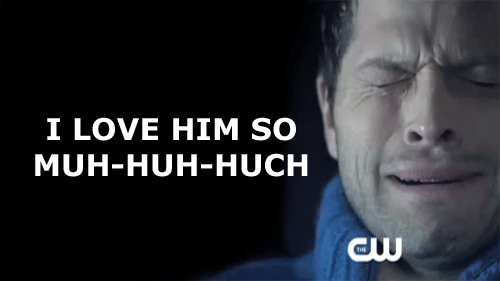So writing this made me think about how much I love all things Sherlock Holmes -- from the original stories, to the Jeremy Brett TV show...wait.
Hold up.
Before I go any further, I've just got to blow a few minds.
Jeremy Brett played Sherlock Holmes on a well-known BBC adaptation of the stories from the 80s-90s. He was awesome and weird. He looked like this:
He was a bit dark.
Por ejemplo:
Hey, does he look a bit familiar? Something nagging at you? You know who Jeremy Brett also played?
Fucking Freddy Eynsford-Hill from My Fair Lady!
THIS DUDE:
Okay, sorry for the digression. So: if there's anything better than the original Sherlock Holmes stories, it's all the sequels and reimaginings, some of which are arguably better than the original.
I mentioned some in the Hello Giggles post: Nicholas Meyer's The Seven-Percent Solution (Holmes meets Freud!), or Laurie R. King's The Beekeeper's Apprentice series* **
*(in that one, the characters get really embarrassed for Holmes when they find out that Sir Arthur Conan Doyle has endorsed the fairy pictures. I love that moment: the Sherlock Holmes character has moved so far beyond the original stories that at this point he is depicted as being embarrassed by his association with Conan Doyle. Isn't that like the ultimate fan fantasy? I think all fans who take issue with the original author of a character would LOVE to have the character condemn the author or simply be embarrassed by the author's shenanigans).
**Michael Chabon has an excellent article about Sherlock Holmes fan fiction in Maps and Legends.
But my fannish-ness actually extends to Doyle somewhat, in that I think he's interesting: Julian Barnes wrote a great novel, Arthur and George, about his life, and there's even a pretty good movie about the fairy picture scandal.
So...ANYWHOODLE. All this thinking about Sherlock Holmes made me finally go and watch the BBC modernization of the stories, called simply Sherlock.
This happened (insert Sherlock for Battlestar Galatica):
And then this (insert Sherlock for Cougartown Abbey):
I genuinely didn't know when I watched the two seasons if there was going to be more after that, so I won't spoil it saying one way or the other. But man. That ending!


What's quite lovely about the series is that even though it's a modernization, it's clearly infused with love for the original stories, and is full of clever little references and updates to the stories. So in that way, it feels much more in keeping with the spirit of the stories than many adaptations.
(For instance, though I haven't seen the two Guy Ritchie/Robert Downey, Jr./Jude Law movies, I'm not opposed to seeing them, even though they don't seem to hew closely to the stories. But there's something really rewarding and strangely...sort of faithful to the source material about Sherlock, despite being set in contemporary times, which makes my fannish heart glad).
(I can safely say, don't see Young Sherlock Holmes, which traumatized me as child by having a) genuinely quite scary and advanced-for-its-time CGI in which b) scary magic Gargoyles come to life and c) obviously the presence of said scary magic gargoyles indicates that the movies basically trod all over the spirit of the stories, so that the movie managed to d) frighten me and piss me off at the same time.)
I read this article by Andrew Galix in The Gaurdian recently, which, despite the windy pretentiousness of the writing in parts, made some points that I found really interesting:
Down the centuries, literature has always been a two-way dialogue between past and present – the former living on in the latter; the latter casting new light upon the former. George Steiner thus contends that the highest form of literary criticism is to be found within literature itself: "...the poet's criticism of the poet from within the poem..." (Real Presences, 1989). This implies that writing is not, primarily, about self-expression, but about reception and transmission
Or, as my wonderful former teacher Charles Baxter used to quote Saul Bellow as saying: "A writer is simply a reader who has been moved to emulation." (This is sort of a "remix" of the Bellow quote -- I like the way I remember C.B. saying it better than the phrasing of the actual quote).
I think something really amazing can happen when the a fan takes an idea or a character or a story and lovingly reimagines it. Because the result is a) a retelling of a story, b) its own story, c) about the original story, d) about the person retelling the story, and e) inevitably about the act of telling stories itself--what stories are and what they mean.
I felt that's what happened with Sherlock -- it's a great re-telling; it's a grew new story; it comments on the original; it says something new; it feels movingly personal; and its ending hinges on the act of story-telling, showing that what's important isn't just the events that happen, but who tells what version of the events and who is believed.
And it's not magic -- it's just that the act of retelling a story that's beloved by you and others inevitably gives you layers to work with that you just don't have if you start from scratch (arguably this is impossible, anyway). The Galix article talks about authors throughout the centuries feeling that they've "come too late" and there's "nothing more to say" -- worrying about being too influenced or doing the same thing over and over again.
I feel the opposite -- I rarely get as excited about books or television or movies as I do when I start to see connections, to see how one story is a retelling of another or a variant on yet another and how authors "talk" to each other, reforming what they love into something else, adding always to the ongoing conversation. Why should art be a monologue in which you attempt to impress everyone by saying something that's never been said before! when it can be a dialogue, bouncing back between the past and present, responding eagerly to what has come before?



2 comments:
Jeremy Brett was a very intense Sherlock Holmes. Benedict Cumberbatch's Holmes is a self-described high functioning sociopath.
Have you tried the Russian adaptation with Vasily Livanov as Sherlock Holmes..
Cheers!
Jeremy Brett was a very intense Sherlock Holmes. Benedict Cumberbatch's Holmes is a self-described high functioning sociopath.
Have you tried the Russian adaptation with Vasily Livanov as Sherlock Holmes..
Cheers!
Post a Comment